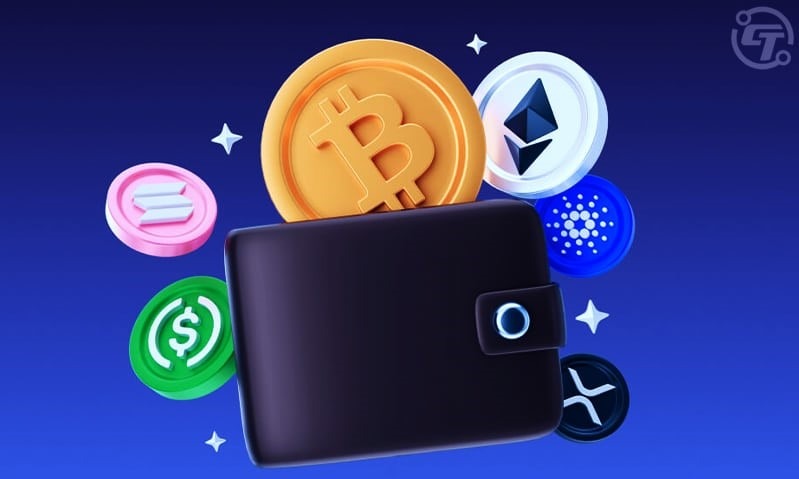Bitcoin wallets are essential tools for managing, securing, and accessing your digital assets. For newcomers in the crypto space, understanding the types of wallets, their features, and best practices for safeguarding funds is crucial for a successful and secure investment journey.
This guide explores the fundamentals of cryptocurrency wallets, helping new investors make informed decisions about storing and protecting their assets.
1. What is a cryptocurrency wallet?
A cryptocurrency wallet is a software application or physical device that allows users to store and manage their digital assets. Unlike traditional wallets, crypto wallets don’t store the currency itself but instead store the cryptographic keys needed to access and manage funds on the blockchain.
Private Key vs. Public Key: Wallets use a pair of cryptographic keys: a public key, which is similar to an account number, and a private key, which acts like a password. The private key must be kept secure at all times since it grants control over the wallet’s funds.
- Advertisement -
Seed Phrase: Most wallets come with a seed phrase, a series of randomly generated words that can be used to recover your wallet if needed. Understanding this term is fundamental for crypto wallet safety.
2. Types of Cryptocurrency Wallets
Different types of wallets cater to diverse needs and offer various levels of security, accessibility, and functionality.
A. Hot Wallets: connected to the internet, making them convenient for quick access to funds. Commonly used by beginners, these wallets are easier to use but are more susceptible to online attacks.
Software Wallets: These can be mobile or desktop applications and provide direct access to your crypto funds. Examples include Exodus and Trust Wallet.
Web Wallets: Typically offered by exchanges, these wallets allow access through a web browser. Examples include Binance and Coinbase.
B. Cold Wallets: offline wallets that offer enhanced security by being disconnected from the internet. Ideal for long-term holding (often called “HODLing”).
Hardware Wallets: Physical devices that store private keys offline, such as Ledger and Trezor.
Paper Wallets: involve printing out your public and private keys on paper. While secure, paper wallets are susceptible to physical damage and loss.
3. Choosing the Right Wallet for Your Needs
For new investors, choosing a wallet depends on your investment goals and security needs.
Accessibility Needs: If you need quick access, hot wallets are more convenient but come with greater risks.
Security Priorities: Cold wallets are more secure but may lack the convenience of hot wallets.
Diversifying Storage: Many experienced investors use both types, storing small amounts for trading in hot wallets while securing larger investments in cold wallets.
4. Setting Up and Securing Your Wallet

The setup process varies depending on the wallet type but generally involves similar steps. Here’s a guide on setting up and securing your wallet:
Download and Install: Always download wallets from trusted sources, such as official websites or app stores.
Back Up Your Seed Phrase: Write it down on paper and store it in a safe place. Avoid digital copies that could be exposed to hackers.
Enable Two-Factor Authentication (2FA): For added security, especially on exchange-based wallets, enabling 2FA can provide extra protection.
Regular Updates: Always update your software wallet or firmware for hardware wallets to protect against vulnerabilities.
5. Best Practices for Wallet Security
Ensuring your wallet’s security is paramount in the crypto space. Here are some tips to follow:
Avoid Sharing Private Keys: Treat your private keys as confidential and never share them with anyone.
Beware of Phishing Scams: Always check the URL when logging into web wallets and avoid clicking on suspicious links.
Use Strong Passwords: Password strength is crucial. Use unique, complex passwords and consider using a password manager if necessary.
6. Recovering and Restoring Your Wallet
Knowing how to recover a lost wallet can save you from the devastating loss of your funds.
Using Seed Phrases: Most wallets allow users to restore funds using the seed phrase. Ensure your phrase is stored safely, as anyone with access to it can control your funds.
Device-Specific Backups: Hardware wallets, for example, allow you to use seed phrases on compatible devices to restore your wallet.
7. Pros and Cons of Different Wallet Types
Each wallet type has its strengths and weaknesses:
Hot Wallets:
Pros: Easy access and user-friendly, suitable for daily transactions.
Cons: Increased risk of hacks and scams.
Cold Wallets:
Pros: Highly secure and ideal for long-term holding.
Cons: Less convenient for frequent transactions and requires careful handling to avoid loss.
8. Common Wallet Providers and Their Features
As a beginner, choosing reputable wallet providers is crucial. Here are some popular options:
Coinbase Wallet: A user-friendly wallet with built-in exchange functionality.
Exodus Wallet: Known for its sleek design and ease of use, especially for newcomers.
Ledger Nano: A top choice among hardware wallets with a solid reputation for security.
Trust Wallet: Popular for its multi-currency support and mobile convenience.
9. Legal and Tax Implications of Cryptocurrency Wallets
Cryptocurrencies are often subject to tax regulations in many countries, and your wallet choice can affect your reporting.
Tracking Transactions: Some wallets help track your transaction history, useful for tax reporting.
Consulting with Tax Professionals: New investors should understand the tax implications of crypto trading and consult professionals when needed.
10. Final Thoughts for New Investors
Cryptocurrency wallets are vital tools that provide autonomy over your funds. As you dive into the crypto world, learning the ins and outs of wallet security, different storage types, and best practices will prepare you for a safer and more rewarding investment experience.

